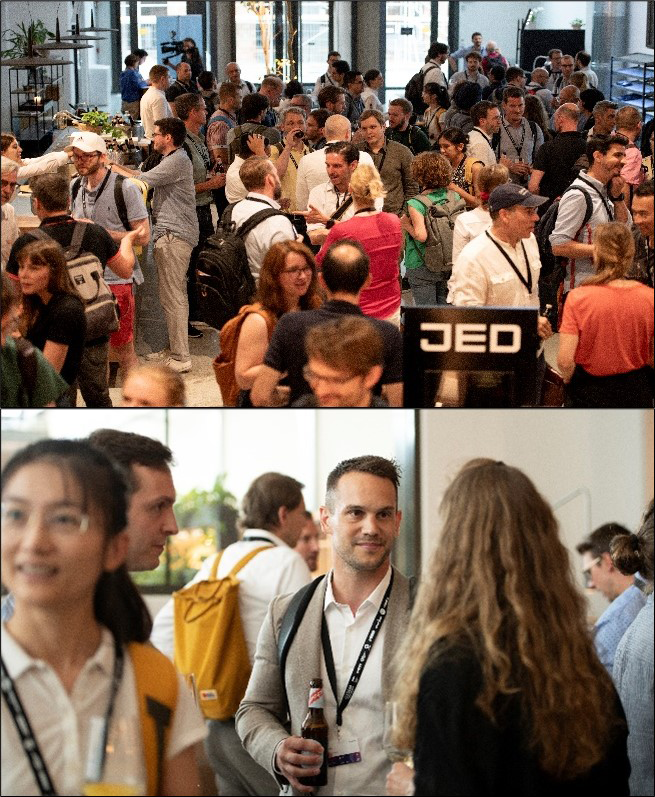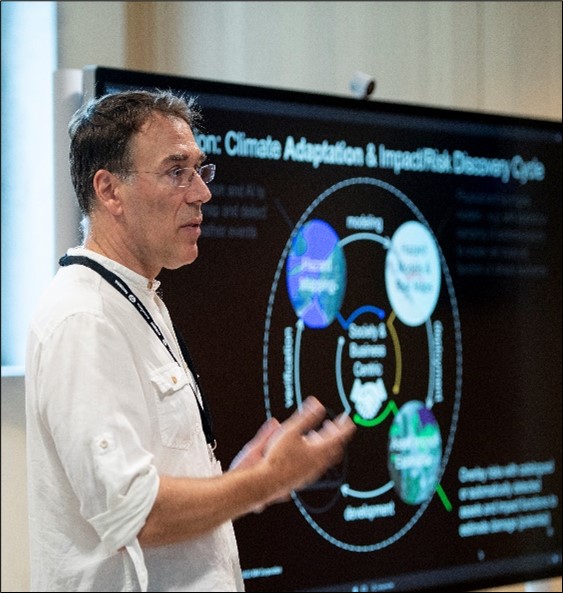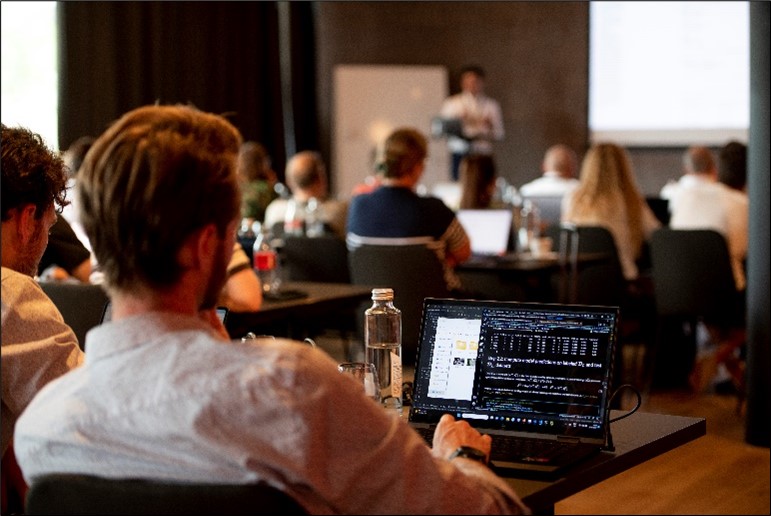
IEEE 10th Swiss Conference on Data Science (SDS) – Workshop Day
Co-creation for solving tomorrow’s challenges today
On June 22nd-23rd, the IEEE 10th Swiss Conference on Data Science (SDS2023) took place in Zurich/Schlieren. The first day was dedicated to interactive workshops and held in the amazing JED event location in Schlieren. With 15 workshops, more than 350 participants and a lot of enthusiastic feedback, we can draw a very positive conclusion. At this point, we would like to thank again all workshop organizers and the spirit of all participants – without your commitment and active participation, the workshop day would not have been possible! In this blog, we would now like to briefly present 4 selected workshop formats which, within the framework of the databooster program of Innosuisse, had a particular focus on co-creation and ideation.


The workshop Responsible AI – Explainability, Transparency and Fairness of data-based applications in practice, was organized by CLAIRE (R. Chavarriaga), the Expert Group Data Ethics (C. Heitz), Eraneos (B. Müller) and the applied universities FHGR (C. Hauser) and ZHAW. The event started with short keynote speeches by Xavier Renard (AXA Group Paris) and Arman Iranfar (CertX), who addressed the challenges around the concepts and levels of fairness, non-discrimination, explainability or transparency as well as the upcoming regulatory frameworks in the frame of the AI Act and the related requirements.
Subsequently, various break-out groups were formed, and challenges and solutions with a focus on practical implementations were developed and discussed. The key challenges identified were: i) What is a structured approach to develop responsible AI?, ii) How to set up a risk assessment which is suited for addressing the risk-based approach required by the EU AI act?, iii) How can data scientist be connected with other stakeholders for making sure that the engineering of AI is fully connected with an integrated risk assessment?, and iv) How to measure the “degree of responsibility” of responsible AI?
For identified challenges for which no solution was found during the workshop, specific innovation support programs were presented offering possibilities to be able to continue the work in depth afterwards.
Under the GEOspatial tag, 2 workshops were held in cooperation with the GEOSummit. GEOSpatial Data Science – The Power of Knowing Where (by D ONE – M. Kliesch, A. Soleymani, P. Thomann) and GEOSpatial Business – Innovation & Business Cases (by Expert Group Spatial Data Analytics – S. Keller, R. Leiterer, Swiss Geoinformation Strategy SGS – C. Najar) and the Swiss Territorial Data Lab STDL – R. Rollier, R. Pott).
In The Power of Knowing Where, the participants discuss existing and brainstorm potential future use cases across various sectors. Using open-source datasets, the participants were able to implement their ideas in the subsequent hands-on session and to investigate and predict natural hazards relating to climate-change in Switzerland – from the exploration, visualization, and manipulation of location-based data towards the use of it in predictive modelling.


In Innovation & Business Cases, the participants got insights into the business potential of geospatial data and value-added service presented by Jonas Weiss (IBM). Furthermore, legal requirements on ESG reporting and risk assessments of large investments were discussed and challenges but also opportunities presented – paving the way to completely new business perspectives and new business models that can be exploited. The STDL presented success stories and use this to lead to an open and interactive discussion round allowing participants to bring their specific questions and case studies to the table for constructive feedback – and to push ideas further with new approaches, new motivation, and new contacts.
P. Hutzli and B. Russinello (la Mobilière) gave in their workshop an Introduction and ROI of Knowledge Graphs, based on three examples in watch industry, energy and insurance. They presented, why Swatch, BKW and Mobiliar have chosen Knowledge Graph technology over classical approaches to combine data and metadata from many different sources into one coherent data network. The complete process was discussed – from the initial pain points and how they built their solutions to the business cases and the positive returns on investment. Inspired by these specific journeys, the participants were motivated to identify similar pain points and use cases in their own organization, to develop a simple road map and to calculate a quick Return on Investment (ROI). Afterwards, the specific business cases were presented for immediate feedback, mutually inspiring everybody to look for new use cases.


The Expert Group Smart Maintenance (Lilach Goren Huber, Manuel Arias Chao – ZHAW) organized the workshop Deep Learning for Predictive Maintenance: Scalable Implementation in Operational Setups. In this workshop, the gap between the state-of-the-art research on the one hand, and industrial implementation, on the other hand was discussed.
One of the underlying theses for this was that the technological and algorithmic development is driven primarily by academia and less by industry which stands in contrast to other applications of DL such as image recognition, speech recognition and gaming, which are driven by industry giants like Google, Meta, or Microsoft. In a co-creation setup, the following challenges were addressed, and solutions discussed based on the use-cases of wind turbines and aircraft engines: i) dealing with the lack of labeled historical faults, ii) effective combination of domain knowledge for fault isolation, iii) upscaling the Fault Detection and Isolation (FDI) algorithms to multi-component systems, and iv) quantifying uncertainty in fault detection problems.
The SDS2023 workshop day convinced with the awesome atmosphere, highly committed workshop organizers and open-minded participants interested in exchange and cooperation! Thanks a lot for this inspiring day!
(SDS Orga-Team, Images © Simone Frischknecht, data innovation alliance)
